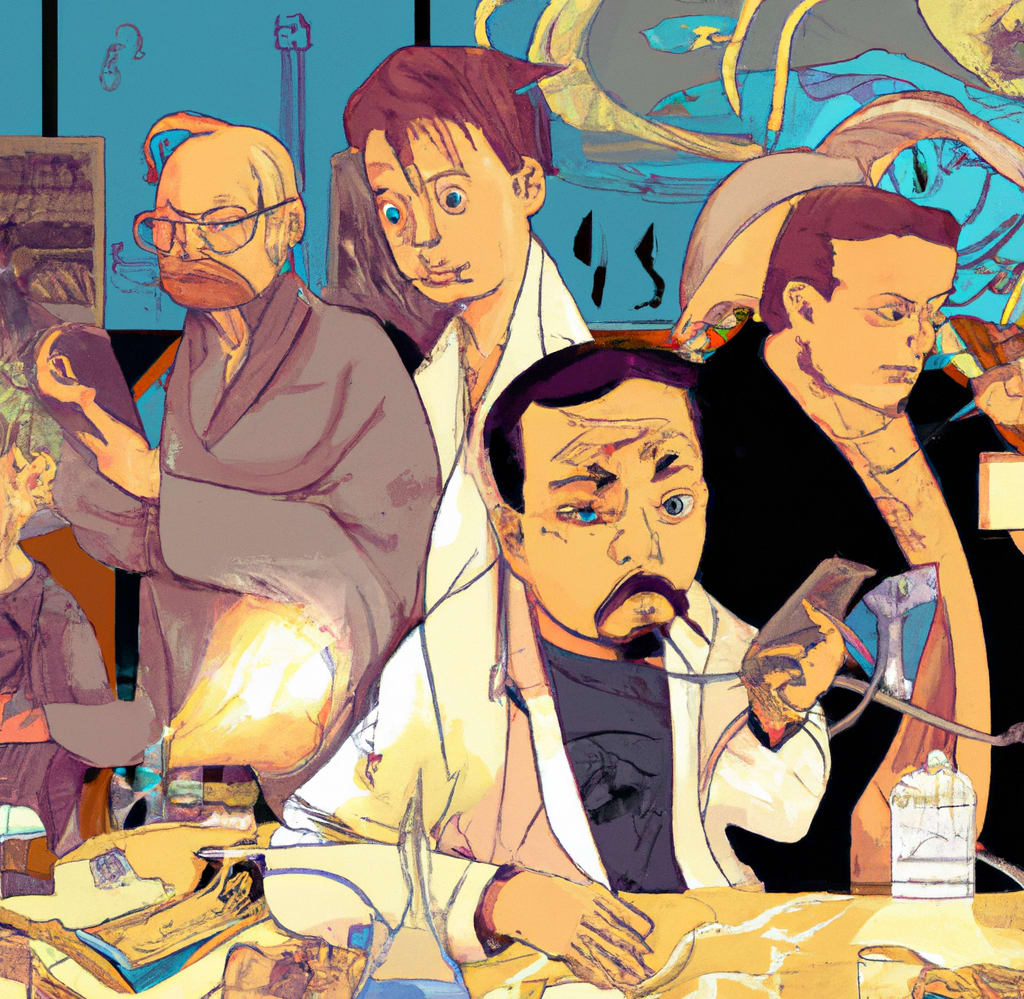The Cupid's Bow
The Perils of Predicting Affection

In a world where love was nothing more than a concept, a group of scientists developed a new regression algorithm that promised to predict people's affection for each other with an astounding level of accuracy. The idea of love becoming quantifiable was fascinating, and the news of this groundbreaking development quickly spread like wildfire. People all over the world eagerly awaited the release of the new program, hoping to find their perfect match.
On the day of the launch, the developers held a grand event to unveil the new regression algorithm, which they had affectionately named "The Cupid's Bow." They had invited the world's most renowned relationship experts, celebrities, and influencers to witness the program's launch and testify to its effectiveness. As the developers took to the stage to present their invention, the audience was buzzing with anticipation. They talked about how the program worked, explaining that it analyzed the smallest details of a person's behavior, interests, and preferences to calculate their likelihood of falling in love with someone.
The developers' claims about the effectiveness of their algorithm were met with a great deal of skepticism by the media and the public alike. People questioned the ability of a machine to accurately predict something as complex and mysterious as human emotions.
Despite the doubts, the developers proceeded to demonstrate their program. However, just as they were about to begin, the program suddenly malfunctioned. The Cupid's Bow began spitting out completely random and inaccurate results. The audience was stunned, and the developers were horrified. They tried everything to fix the program, but it was too late. The damage had been done, and the media ridiculed the developers, calling them frauds and quacks.
However, as time passed, people began to see the failure of the program as a blessing in disguise. They realized that love cannot be predicted by an algorithm and that it is the unpredictable nature of love that makes it so special. Instead of relying on a computer program, people began to value affection more than ever before. They started to cherish the small moments and appreciate the people in their lives, regardless of what an algorithm predicted.
As the days went by, something remarkable happened. A young couple who had been matched by The Cupid's Bow, but whose relationship had faltered because they had not followed the program's suggestions, found each other again. They bumped into each other by chance in a coffee shop and, as they talked, they realized that they had never stopped thinking about each other. They realized that they were meant to be together, not because of an algorithm, but because of the special connection they shared.
The couple fell in love all over again, and as they walked out of the coffee shop, holding hands and smiling, a rainbow appeared in the sky. The audience watched in awe, realizing that affection was not something that could be measured or predicted. Love was too complex, too mysterious, and too beautiful to be reduced to a mathematical equation.
From that day on, The Cupid's Bow was never spoken of again. It became a forgotten relic, a reminder of how love cannot be quantified and how the human heart will always be a mystery, even to the most advanced algorithms. The failure of the program taught people that love is not something that can be engineered or predicted. Instead, it is a feeling that is nurtured and grown over time, a feeling that can only be experienced, not calculated.
The lessons learned from the failure of The Cupid's Bow were invaluable. People began to understand that affection and love were not just concepts, but something real and tangible. They learned to appreciate the people in their lives and to cherish the moments they shared. They realized that love was not just about finding a perfect match but about building a strong and lasting connection with another person.
As for the young couple, they went on to live happily ever after, grateful for the chance encounter that had brought them back together. They knew that their love was not the result of a computer algorithm but was something that had grown and developed naturally over time. They appreciated each other's quirks and imperfections, and they never took each other for granted.
In the end, the failure of The Cupid's Bow had taught people that love was not something that could be quantified or predicted. It was a feeling that had to be experienced and nurtured, and it was something that could never be fully understood or explained. The world had learned an important lesson, and it was a lesson that would never be forgotten. Love was a mystery, and it was a mystery that people were happy to embrace.
About the Creator
Nikki Clam
Bringing unexplored elements to the light!






Comments (1)
1+1=1, this is a great story, bravo, 😀